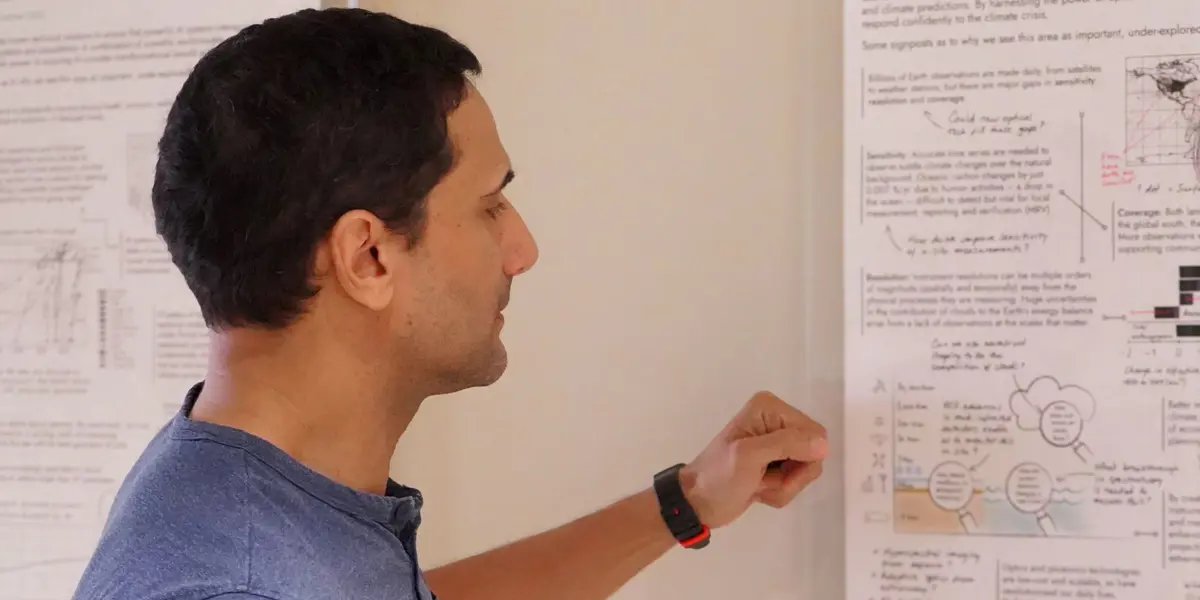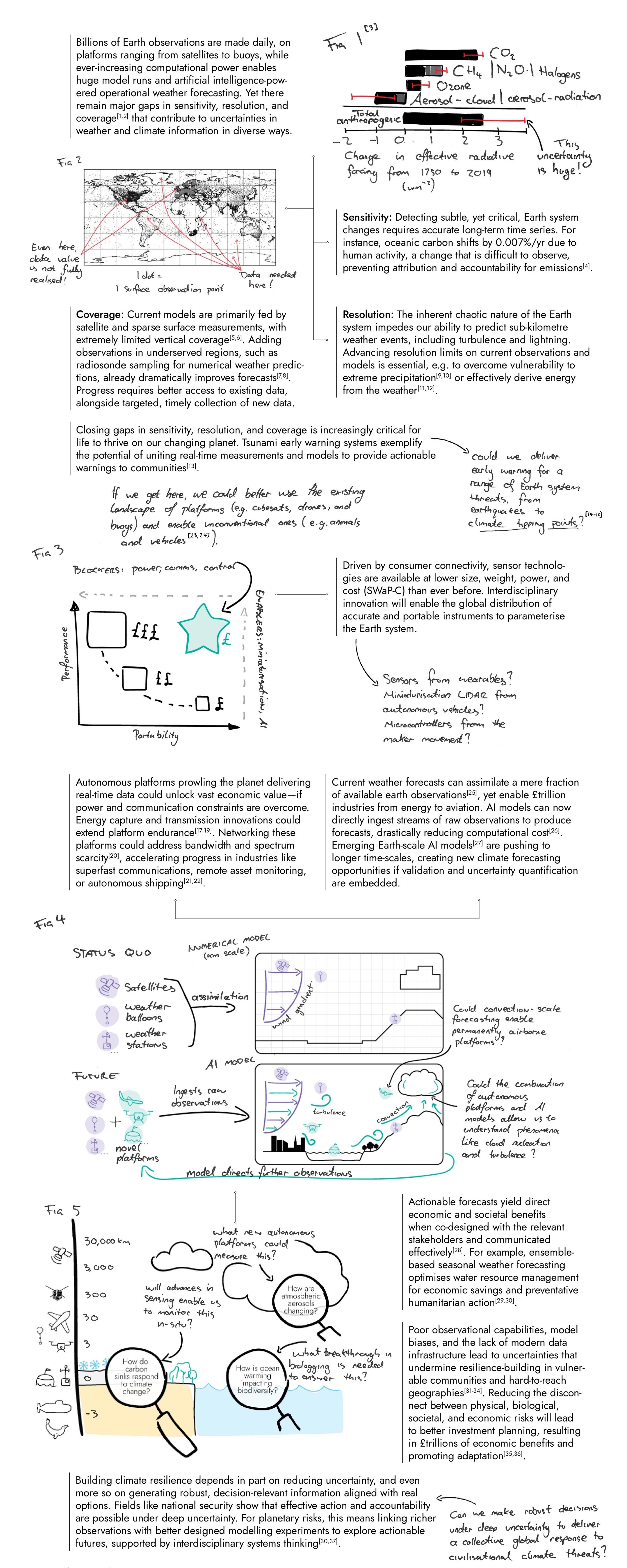What if we could close the gaps in our understanding of the Earth system?
Defined by our Programme Directors, opportunity spaces are areas we believe are likely to yield breakthroughs.
In Scoping Our Planet, we seek to unite frontier platforms, sensors, and AI models to revolutionise our understanding of our Earth system, maximise planetary resilience and revolutionise global business.
Beliefs
The core beliefs that underpin this opportunity space:
Earth measurement and modelling gaps exist in space and time → closing these gaps is crucial to unlock actionable information.
A dynamic interplay of frontier platforms, sensors, and models could parameterise the entire Earth system → the resulting forecasts will revolutionise global business and maximise planetary resilience.
Technological innovation alone is not enough; fragmentation of Earth system research, disconnected from the needs of industry, policymakers, and society, is severely impeding progress → transforming data into knowledge and accountability is vital for a future of human prosperity on a flourishing planet.
Programmes
To build a programme within an opportunity space, our Programme Directors direct the review, selection, and funding of a portfolio of projects.
In Scoping Our Planet, we seek to unite frontier platforms, sensors, and AI models to parameterise the Earth system. By linking richer observations with better modelling and new platform technologies, we can unlock trillions in economic value and maximise planetary resilience.

Forecasting Tipping Points
Backed by £81m, this programme combines expertise in observation and modelling with innovative sensing systems, to develop a proof-of-concept for an early warning system for climate tipping points. By confidently predicting when a system will tip, what the consequences may be, and how quickly that change may unfold, we’ll equip society with the information it needs to build resilience and accelerate proactive climate mitigation.

Enduring Atmospheric Platforms
Backed by £50m, this programme looks to create a resilient and sustainable platform layer between Earth and space. Success will be measured by a single, galvanising demonstration: keeping a platform aloft for one week while maintaining line-of-sight to a fixed ground point and continuously powering a 300W payload. If possible, this technical breakthrough will provide the physical backbone required for next-generation advanced communications, serving as a critical enabler for the projected £13–20 trillion annual economic potential of AI.
Opportunity seeds
Outside the scope of programmes and with budgets of up to £500k, these opportunity seeds support ambitious research aligned to the Scoping Our Planet opportunity space.
From sensors that fingerprint methane emissions to measuring ocean mixing by combining seismic reflection + hydrographic data, we're funding an array of projects across individual research teams, universities and start ups to maximise the chance of breakthroughs.
Unlocking Ground-Breaking Observations of Antarctic Mixing With Legacy Data
Kathryn Gunn, University of Southampton
Self-degrading Environmental Exploration Drones
Iganzio Maria Viola, University of Edinburgh
Photonics for Portable Isotopologue and PPT Sensing
Peter Nisbet-Jones, Twin Paradox Labs; Christopher Bridges, University of Surrey
Distributed Photovoltaic Neural Networks for Environmental Monitoring
Andrea Di Falco, University of St Andrews
Antarctic Explorations: Where does glacial meltwater go?
Laura Cimoli, University of Cambridge
REMM: REthinking Methane Measurement
Jane Hodgkinson, Cranfield University
Next-CAM
Ronald Clark, University of Oxford
Persistent Monitoring of Climate Variables Using High Altitude Pseudo Satellites
Steve Tate, Voltitude
Clouds Decoded
Jacqueline Campbell, Asterisk Labs
Rapid Development of a Mass-manufacturable SWIR Hyperspectral Camera
Sam Hornett, Living Optic
WAVECLIM
Serge Guillas, University College London
This opportunity space is part of our rolling seed call experiment – see what's in scope for opportunity seeds in this space by reading the original call for proposals and apply at the link below.
Sign up for updates
Stay up-to-date on our opportunity spaces and programmes, be the first to know about our funding calls and get the latest news from ARIA.


